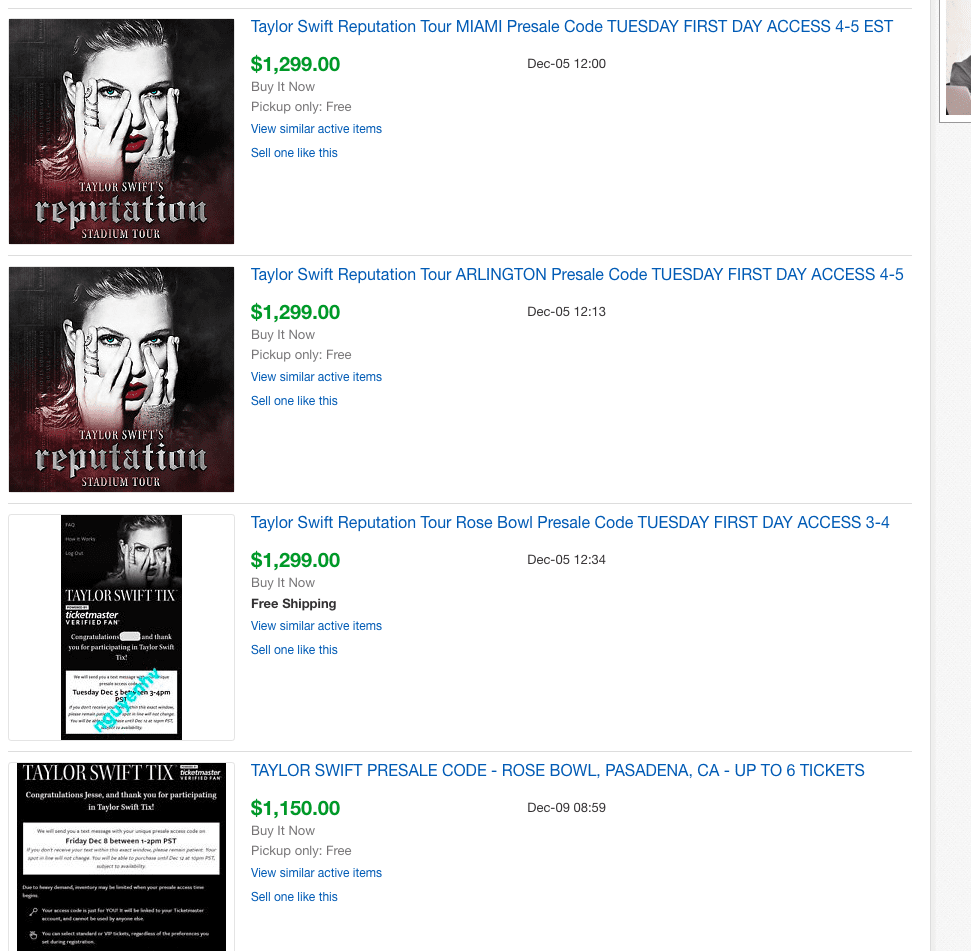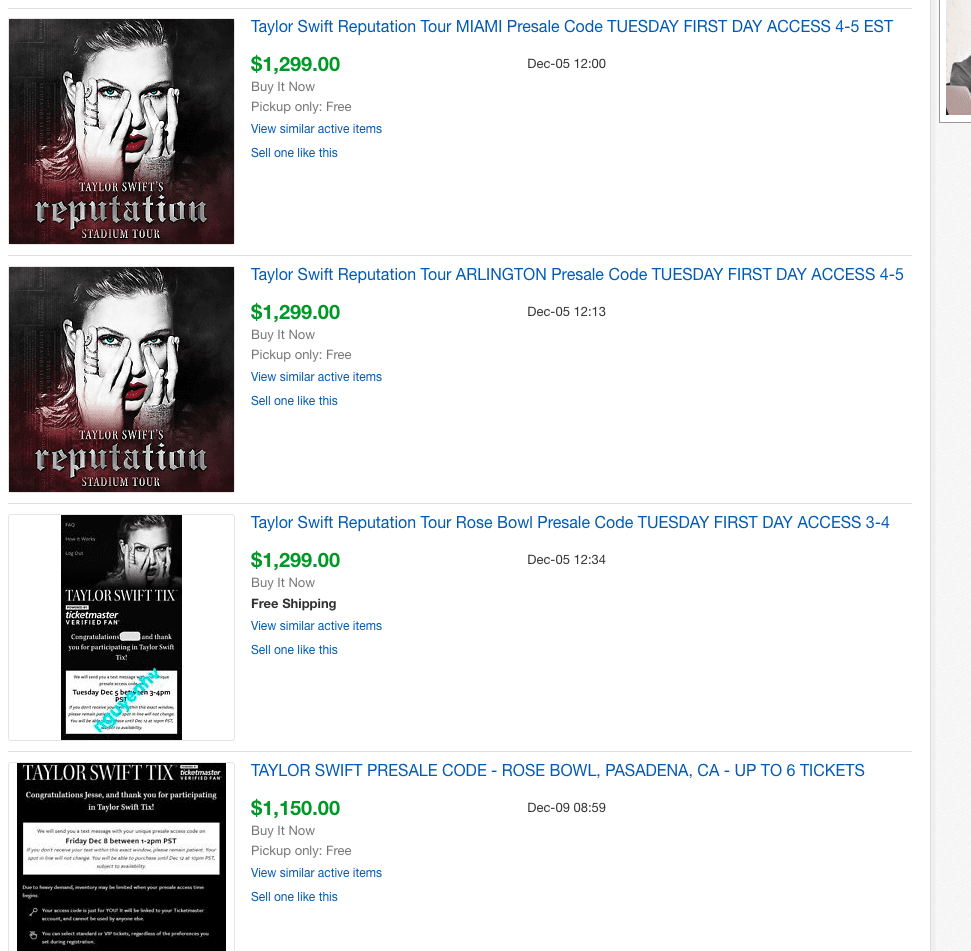by Sam Pocker, Special to TicketNews
“Taylor Swift is committed to getting tickets into the hands of fans” reads the marketing copy that has so far seen yet another generation of tweens and teens become disillusioned by the realities of the marketplace until nostalgia kicks in a decade from now.
In the meantime a new generation of speculators and opportunists are arising in the world of reselling not just presale passwords, but entire Ticketmaster accounts that were created in order to harvest them. Since the Verified Fan presale codes are purported to be linked to an individual account, the sellers appear to have created presumably new accounts with no sales history attached to them in order to take a shotgun approach to harvesting these codes.
Is it profitable? It’s hard to know how much work went into it, but as of this morning there are approximately 75 completed sales of such codes and/or accounts on eBay with final sale prices of $10 up to $1,299. At least 9 of these listings sold for over $1,000 a piece.

Interestingly, many of the listings claim to have been approved for a purchase of up to six tickets. One of the key aspects of the unique registration process for this tour was to determine how many tickets the customer intended to purchase and at what price in order to determine market values before the onsale. It’s quite telling that after the data was mined and sorted, the consumer was encouraged to purchase more than they potentially wanted or needed.
Also telling was the process of who got the codes issued to them.
For example, while my personal Ticketmaster account is presumably flagged as a broker account, I have personally purchased tickets for and attended Taylor Swift’s previous two tours. I then pre-ordered “Reputation” via the Taylor Swift Official Store (which somewhat surprisingly uses a UPS store in a strip mall next to a Pizza Hut as its address) for $15.
The CD arrived days after the release date, and I was then sent an email stating “Thank you for registering for Taylor Swift Tix. Unfortunately, we are unable to verify you for presale access.”
Meanwhile, TicketNews editor Sean Burns, who stated in a previous article that he “registered on a lark and is not particularly fond of Ms. Swift’s music”, was issued a code. The fine print of Ticketmaster’s Verified Fan program states that “Ticketmaster Verified Fan® is committed to getting tickets in the hands of fans. Not scalpers or bots.” So it would appear that the issue has everything to do with maintaining a blacklist more than it does targeting frequent shoppers.
Even though I’ve previously written about how this system can and should be used to exploit every last penny from consumers, it would appear that once again Ticketmaster may be trying to sell a bill of services that it may not actually be able to provide.
It would be fairly easy to see the data showing that I purchased a ticket to see Taylor Swift in the past, that I used my debit card to pay for a Coca-Cola and a pack of Twizzlers at the show, that I had Instagrammed a selfie of myself using a Twizzler with the ends bit off of it and turned into a makeshift straw for said Coca-Cola as is my standard pop-show behavior.
Instead I was simply blacklisted from this process.
Fair enough, but when you look at the bulk of the posts from the presale complaining about ticket prices it’s clear that they equally miscalculated which consumers should be offered which price points.
Why the data wasn’t properly analyzed and mined is anyone’s guess. Presumably when running a P&L for a tour of this size it may not be financially sound to spend money doing this much research, perhaps Ticketmaster doesn’t really have the technological resources to do this kind of work, perhaps it’s a program announced to help increase the stock price. We could speculate all day, in the meantime people farming Ticketmaster accounts are making more money than ticket brokers would for a brand-new and completely unregulated market.
Sam Pocker has been a consultant in the every imaginable facet of the ticketing industry for over 20 years. His groundbreaking research in consumer psychology was the basis for his first book “Retail Anarchy”. He has given keynotes at many CPG and technology industry conventions, and his documentary film “Your Mileage May Vary” was widely imitated by several successful reality shows. He has appeared in The Wall Street Journal, The Washington Post, New York Daily News, PIX 11 News, Sirius Radio, NPR, and many other media outlets.



